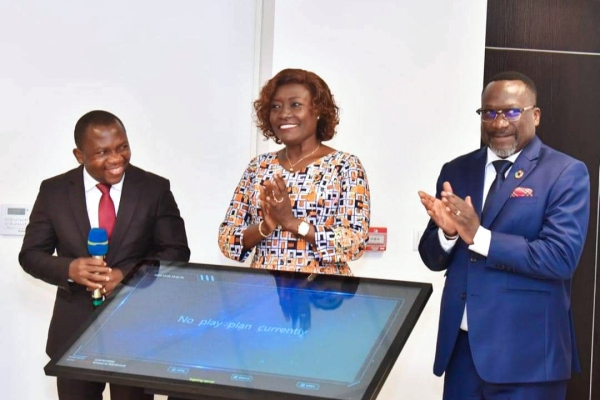The Covid-19 crisis has highlighted the power of digital technology in education, in Africa as elsewhere. Since then, African governments have been launching initiatives to promote its development and improve access to quality education for all.
On Thursday, October 24, the Ivorian Minister of National Education and Literacy, Mariatou Koné (photo, center), officially presented and launched the National Digital Education Strategy of Côte d'Ivoire (SNDECI). This roadmap, based on recommendations from the National Education and Literacy General Assembly (EGENA), reflects the government’s commitment to elevating the Ivorian educational system to be among the world's best within the next five years.
“Digital education supports traditional teaching and will significantly enhance the quality of our education system without replacing in-person learning. By integrating modern technologies into our schools, we reduce geographical, social, and economic inequalities, allowing the education system to provide more interactive and engaging learning to every child, wherever they are,” stated Mariatou Koné.
The new strategy aligns with the 2021-2025 National Digital Development Strategy and the country’s national development plan, which aim to transform Côte d'Ivoire's economy through the integration of digital technologies across all sectors, including education. It is built on three pillars: infrastructure, organization, and training. The strategy, with an estimated budget of 220.7 billion CFA francs (about $364 million), will include training for teachers and administrative staff, the acquisition of digital equipment, and the installation of modern technological infrastructure in schools.
The implementation of this strategy is expected to bring multiple benefits, enhancing the accessibility and equity of the education system. It will bridge quality gaps between regions, particularly in rural areas, and provide students with the digital skills needed to thrive in a transforming economy.
According to United Nations projections, Africa’s population will reach 2.4 billion by 2050, with more than half under the age of 25. This youth demographic presents a significant opportunity for Africa, but it also underscores the urgency of developing modern, inclusive education systems capable of meeting the needs of a digital workforce and fostering sustainable economic growth on the continent.
Samira Njoya



















